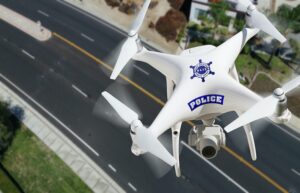The audiovisual professions are booming thanks to the relentless advances in technology. The invention and use of new innovative tools bring out new ways of exercising in this sector. One of these tools is the drone which requires a certain level of knowledge and solid remote piloting skills. In addition, becoming a drone pilot requires mastering framing techniques which can be acquired in a specialized course . Follow this guide to know the training to follow to become a professional drone cameraman.
DEFINITIONS
WHAT IS A DRONE?
A drone is an aircraft that flies without anyone on board. It is said to be remotely piloted by integrating a camera to photograph or film everything it flies over. Depending on its size and its power, a drone is used to carry out a civil or military air mission . Thus, to fly a drone as a professional, follow a drone cameraman training is mandatory.
WHAT IS A DRONE CAMERAMAN?
The use of the small remote-controlled plane is provided by a drone cameraman . He is the person specially trained to produce high quality audiovisual content by drone shooting.
THE USE OF THE DRONE FOR FRAMING
For framing and composing images, the drone can be used in two ways:
- either by piloting as a single operator : the drone cameraman controls his device and also directs the camera to take shots;
- or by dual operator piloting : a remote pilot controls the drone and the cameraman adjusts and orients the camera in the right direction.
FOLLOW A DRONE CAMERAMAN TRAINING
COURSE AND CONTENT OF TRAINING
The training to become a drone cameraman lasts 7 days , including 49 hours face-to-face and 20 hours remotely. During this time, the apprentice follows a well-defined program with a theoretical part and a practical part:
- day 1: discovery of the drone remote pilot activity with the national and European regulations in force;
- day 2: study of the operation of a drone and piloting on a simulator;
- day 3: piloting drones with precision exercises ;
- day 4: simulations , piloting in real situation;
- day 5: discovery of the different intelligent flight modes, framing techniques and examination;
- day 6: use of a drone as a double operator, advanced framing technique;
- day 7: training to frame in difficult conditions (proximity to the subject, speed) or traveling vehicle.
THE BENEFITS OF TRAINING
Following a drone cameraman training has many advantages , because it allows the apprentice:
- to acquire solid skills for drone piloting;
- to master the techniques of framing and composition of images ;
- to become a professional drone cameraman (professional drone operator) with the Civil Aviation ;
- to carry out technical and audiovisual activities in a drone;
- to produce video plans, alone or with a partner.



